Blog
Essential Tips for Choosing the Right Construction Equipment Parts for Optimal Performance
In the ever-evolving construction industry, selecting the right construction equipment parts is crucial for ensuring optimal performance and enhancing operational efficiency. According to a report by MarketsandMarkets, the global construction equipment market is projected to grow significantly, reaching approximately $250 billion by 2025, driven by advancements in technology and increasing infrastructure investments. The quality and compatibility of construction equipment parts play a pivotal role in maintaining machinery reliability and longevity, directly impacting productivity on construction sites.

Furthermore, a study by the Construction Industry Institute indicates that approximately 50% of unplanned downtime is attributed to equipment failures, often due to inferior or mismatched parts. Therefore, understanding the key factors that contribute to selecting the appropriate parts is essential for construction companies aiming to maximize their investment and ensure uninterrupted operations.
Understand the Specific Requirements of Your Construction Project
When embarking on a construction project, understanding the specific requirements is crucial for selecting the right equipment parts. Each project is unique, demanding attention to detail regarding the type of machinery and components needed to ensure efficiency and safety. Begin by evaluating the scope of your project: consider factors such as the terrain, climate, and the materials involved. For instance, a project in a mountainous area may necessitate different machinery or parts than one located on flat terrain. This initial assessment will guide you in making informed decisions about the equipment you need.
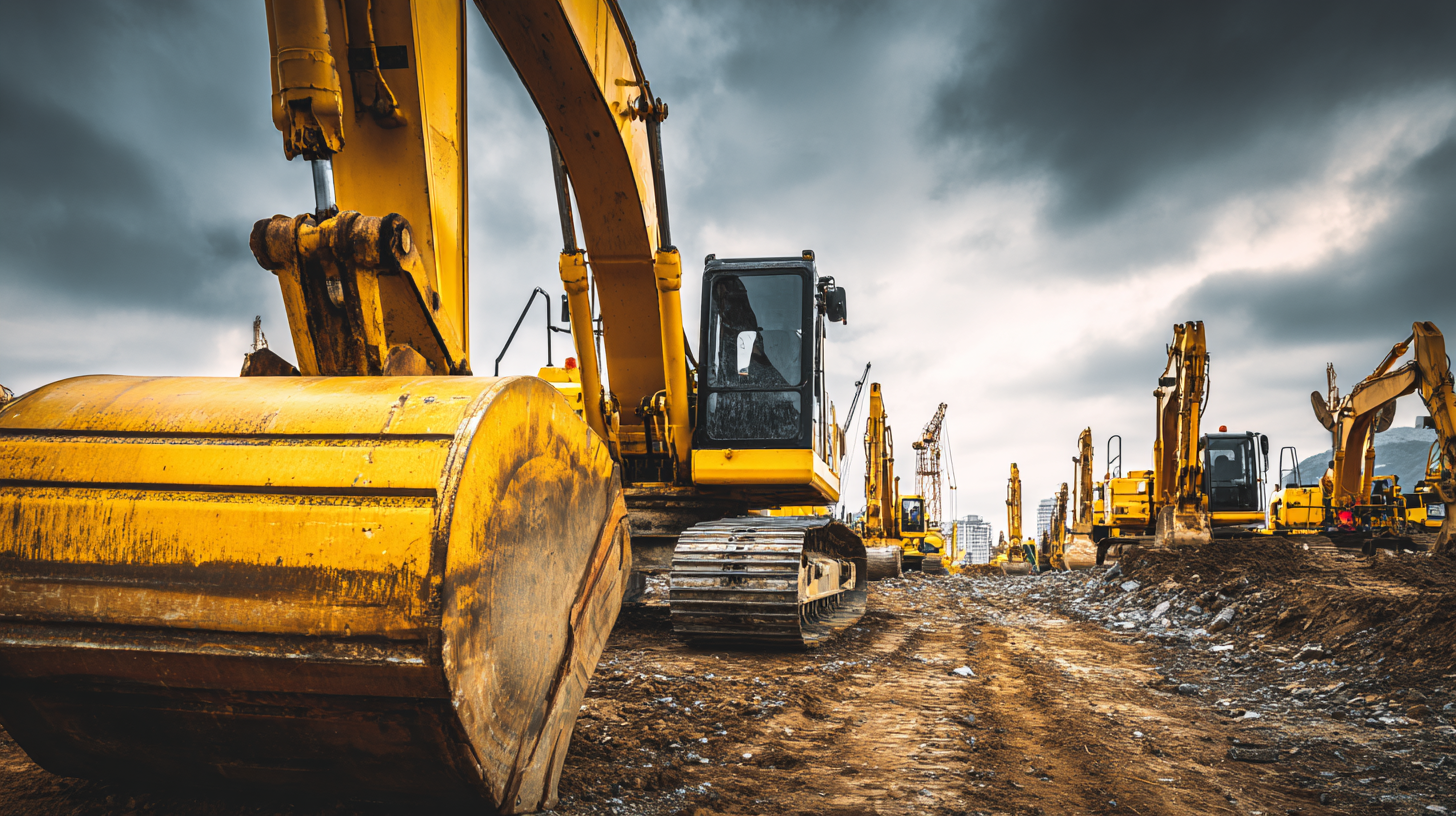
Furthermore, selecting equipment parts should align with both the operational demands and your budget constraints. High-quality parts designed for specific tasks can significantly enhance performance and longevity, reducing the likelihood of breakdowns and repair costs. It's essential to consult with manufacturers or experts who can provide insight into compatibility and performance features of various parts.
By tailoring your selection to the particular needs of your construction site, you can optimize productivity and minimize complications throughout the construction process.
Evaluate the Compatibility of Parts with Existing Equipment
When selecting construction equipment parts, assessing their compatibility with existing machinery is crucial. Compatibility ensures that the new parts will function correctly with your current equipment, maximizing performance and minimizing downtime. Before making a purchase, conduct thorough evaluations to confirm that the specifications match your existing setup. This process is akin to compatibility assessments in other fields, such as machine learning in organ transplantation, where predicting compatibility enhances outcomes.
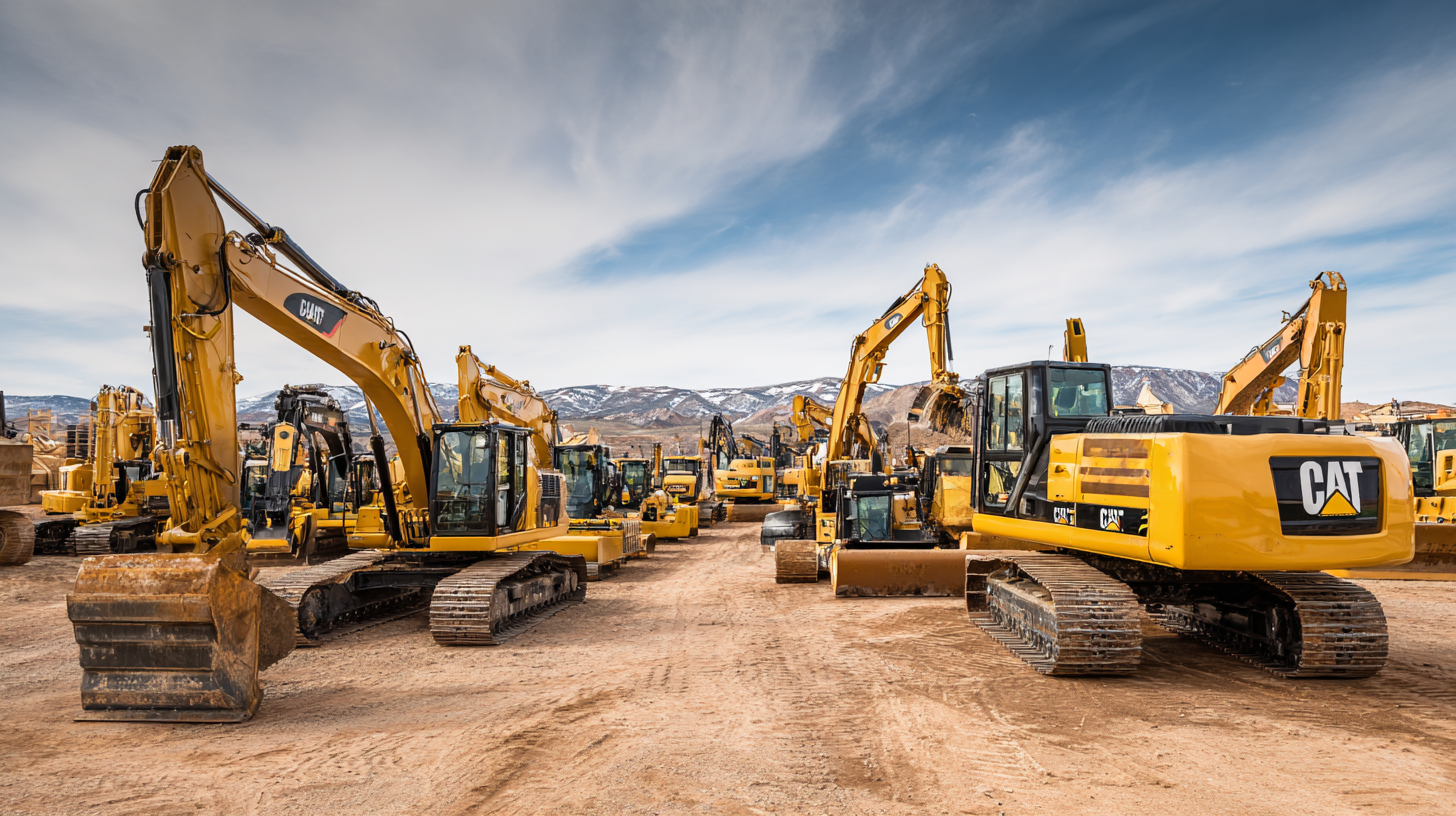
Here are some tips to guide your selection process. First, always refer to the equipment's manual or manufacturer specifications to understand the compatible part types. Second, consult with industry experts or suppliers who can provide insights into the latest parts that ensure optimum integration. Lastly, consider testing a few parts in your system to observe their performance before full-scale implementation. By taking these steps, you can ensure a smoother transition and maintain the efficiency of your construction operations.
Prioritize Quality and Durability Over Cost
When selecting construction equipment parts, prioritizing quality and durability over cost is essential for ensuring optimal performance. According to a report by the Construction Industry Institute, equipment failures due to subpar parts can lead to significant downtime, costing companies thousands in lost productivity. Investing in high-quality components can mitigate these risks, providing a long-term return on investment that far outweighs the initial savings gained from cheaper alternatives.
One crucial tip when choosing parts is to research manufacturers with a reputation for quality. Look for certifications or industry endorsements that indicate rigorous testing and reliability. For instance, a recent study highlighted that construction fleets utilizing premium parts experienced up to 30% longer operational life compared to those opting for cheaper substitutes. Additionally, ensure that the parts you select align with the specifications of your machinery, as compatibility can dramatically impact performance and longevity.
Another tip is to consider the material and construction methods used in the parts you’re evaluating. Higher-grade materials like alloy steel or advanced composites may have a higher upfront cost, but they often provide enhanced durability and resistance to wear. A survey conducted by MachineryScope indicated that companies that invested in high-quality parts reported 40% fewer maintenance issues annually, significantly enhancing overall project efficiency.
Essential Tips for Choosing the Right Construction Equipment Parts for Optimal Performance
| Part Type | Importance | Material | Durability Rating | Cost Consideration |
|---|---|---|---|---|
| Hydraulic Pump | High | Aluminum Alloy | 8/10 | Moderate |
| Excavator Bucket | Medium | High-Strength Steel | 9/10 | High |
| Transmission Gear | High | Carbon Steel | 7/10 | High |
| Fuel Filter | Medium | Synthetic Material | 6/10 | Low |
| Wheel Assembly | High | Rubber & Aluminum | 8/10 | Moderate |
Research Reliable Suppliers and Their Product Offerings
When it comes to selecting construction equipment parts, researching reliable suppliers is crucial for maintaining optimal performance on the job site. According to a report from IBISWorld, the construction equipment manufacturing industry is projected to grow at an annual rate of 3.2% over the next five years. This growth underscores the importance of sourcing high-quality parts from reputable suppliers who adhere to industry standards. Suppliers with positive reviews and a clear track record of reliability can often provide certifications and detailed product specifications that ensure each part meets stringent safety and performance criteria.
Additionally, exploring a supplier's product offerings can significantly impact the efficiency and longevity of construction equipment. A study by the Construction Equipment Association indicates that nearly 32% of equipment failures are attributed to the use of inferior parts. Therefore, investing time to compare various suppliers’ catalogs, warranty options, and customer service can help in selecting parts that enhance productivity and reduce operational downtime. Ensuring that parts are compatible with existing machinery and meet industry specifications not only maximizes performance but also extends the life cycle of the equipment, resulting in long-term cost savings for construction projects.
Essential Tips for Choosing the Right Construction Equipment Parts for Optimal Performance
Consider Maintenance and After-Sales Support Options
When selecting construction equipment parts, it's essential to consider not only the immediate needs for performance but also the long-term implications of maintenance and after-sales support. According to a report by the Association of Equipment Manufacturers (AEM), nearly 80% of equipment failures can be attributed to improper maintenance or the use of substandard parts. This statistic emphasizes the necessity of investing in quality components that come with robust maintenance support.
Additionally, the availability of after-sales service can significantly impact equipment longevity and efficiency. The Equipment Leasing and Finance Foundation noted that 75% of contractors reported that reliable after-sales support was a key factor in their purchasing decisions. This support includes access to replacement parts, technical assistance, and timely repairs, all of which can reduce costly downtime and keep projects on schedule. Thus, evaluating a supplier's commitment to customer service and technical support is critical for ensuring optimal performance from your construction equipment.
Related Posts
-

What Types of Construction Equipment Parts Are Essential for Your Projects
-

Benefits of Using High Quality Construction Equipment Parts for Enhanced Performance
-
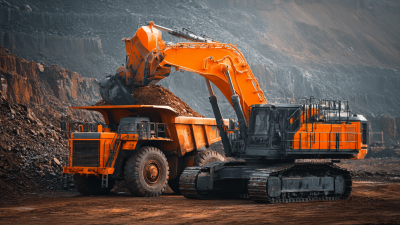
Unlocking Efficiency: The Benefits of Sourcing the Best Construction Equipment Parts
-
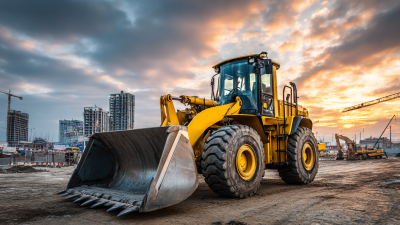
Transforming Construction Sites: What are the Best Heavy Equipment Parts for Optimal Performance?
-
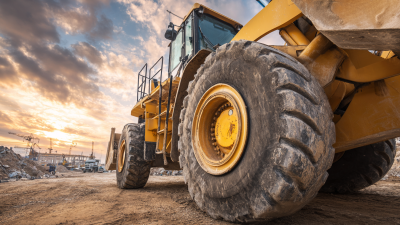
7 Effective Tips for Sourcing Quality Construction Equipment Parts to Boost Your Operations
-
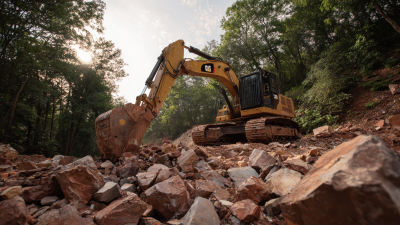
The Ultimate Guide to Choosing the Right Excavator Parts for Maximum Efficiency and Performance
